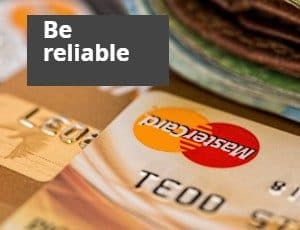By Sylvia Jensen, VP of EMEA marketing, Acquia

Brits love getting a good deal. So much so, in fact, that last year, spending around December time for Christmas dropped by 1.5% because consumers brought forward their spending to Black Friday in November instead.
Traditionally, this time of year proves to be rather lucrative for retailers, as they experience big spikes in sales around Black Friday, Cyber Monday, the Boxing Day sales and the January sales.
Black Friday alone last year accounted for an 8% increase in spending compared with the previous year, with retailer John Lewis describing the event as “one of its most successful days”.
While these events are certainly significant traffic and sales drivers for major online and high-street retailers, they also present a huge opportunity for the thousands of other businesses that sell through these marketplaces to gain visibility and draw in new customers. But what happens when these shopping sprees come to an end? How do retailers turn one-off bargain hunters into loyal customers?
In my eyes, it’s all about the experience — and you get one shot at it.
More articles about Black Friday
Make the experience personal
 Hopefully, when once these promotional events are over, you’ll have a much richer database full of customers who took advantage of your deals, providing you access to more customer data than you’ve ever had before. This information has the potential to tell you all sorts of useful information about your customers, which you can then use to improve the way you sell to them.
Hopefully, when once these promotional events are over, you’ll have a much richer database full of customers who took advantage of your deals, providing you access to more customer data than you’ve ever had before. This information has the potential to tell you all sorts of useful information about your customers, which you can then use to improve the way you sell to them.
This kind of information can include what customers are buying (is it accessories to larger products?
Or anything they can buy again?), when they buy (Is it in the morning or after work, for example?), and how customers are buying (through their smartphone or tablet? At a desktop?)
I cannot understate the importance of taking the time to understand these patterns and create a holistic picture of your customer. If you can answer these questions, you can then make your next move confidently. And understanding the answers to these questions helps you to understand your customers like Amazon does, so you can personalise the experience to each customer — with the aim of converting those one-time purchasers into long-standing buyers. To do that, you need to reach the high bar set by the household names.
The good news is that today’s marketers have the tools and information they need to rise to the challenge and make their touchpoints after Black Friday, Cyber Monday and the January sales, memorable and meaningful.
Understand the journey, as well as the destination
 The customer journey itself (throughout all your touchpoints) leading up to a sale is as important as making the sale itself — if not more so. If you understand what a customer’s journey looks like, you can plan, orchestrate and react more effectively to real-time customer experiences.
The customer journey itself (throughout all your touchpoints) leading up to a sale is as important as making the sale itself — if not more so. If you understand what a customer’s journey looks like, you can plan, orchestrate and react more effectively to real-time customer experiences.
Let’s take the example of a customer who bought a tablet on Black Friday. There’s a clear opportunity to continue to engage with this customer to turn them into a loyal customer and brand advocate — but it’s important to tread carefully.
Today’s consumers face a barrage of media and promotions from every direction, which means they’re quick to disregard anything that isn’t perfectly tailored to their needs. Therefore, mass emails and websites targeted at “everyone” have now become a thing of the past. Instead, it’s your job as a marketer to understand what your customers want — often before consumers knows it themselves. Technology is key to helping you understand how your customers interact with your digital touchpoints, so you can better predict their needs. Effective journey mapping technology can make understanding customers easier, enabling you to predict a consumer’s next move and respond accordingly.
For example, take the person who bought the tablet. If you know they’ve just bought one, you wouldn’t retarget them and push a tablet promotion. The promotion would obviously be redundant and seem impersonal — a one-way ticket to the bin or worse if your brand loses credibility for future purchase consideration. Instead, consider cross selling the latest deals on tablet cases and screen protectors. And because you know this person bought in the evening, you know the best time to push a promotional offer to them is after work hours, when they are more likely to buy.
Be reliable, and save customers time
 Everyone’s busy. You’re much more likely to foster long-term relationships with customers if you can save them time. While a discount may have brought them in, a convenient and seamless experience will keep them coming back.
Everyone’s busy. You’re much more likely to foster long-term relationships with customers if you can save them time. While a discount may have brought them in, a convenient and seamless experience will keep them coming back.
If customers find it difficult to interact with your brand, even the most precisely targeted campaign will likely fail. The user experience needs to be intuitive, where customers can easily find what they need. Similarly, make sure you continually update all communication channels with customers in mind. When evaluating your digital presence, ask yourself if your content is streamlined and updated regularly, and if your site is easy to navigate on the devices your customers use.
Just like the tablet purchaser who may be quick to swipe away an irritating notification that comes in during their morning meeting, consumers are quick to exit a website that’s slow and complex. In fact, 53% of people abandon sites that take more than three seconds to load.
Use technology to your advantage
The real key to turning one-off purchasers into loyal customers is technology. The right tech can give you the right insights into your customers, so you can better serve them.
Without it, you’re in the dark, and another Black Friday and the January sales will pass you by as another opportunity missed.
Download this new eBook : The essential guide to content personalization | https://t.co/SVEQgm7wRR pic.twitter.com/oTSSIJUhaJ
— Will Corry (@slievemore) October 30, 2018

